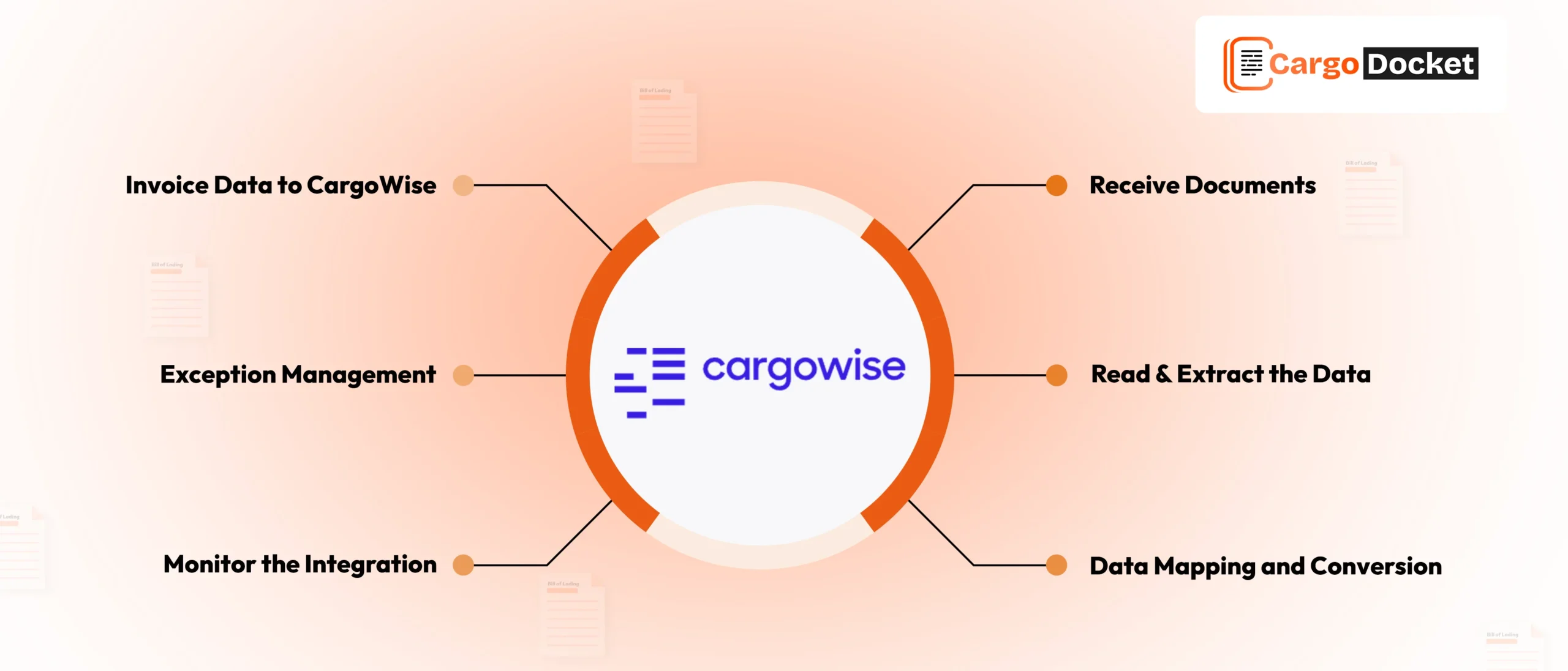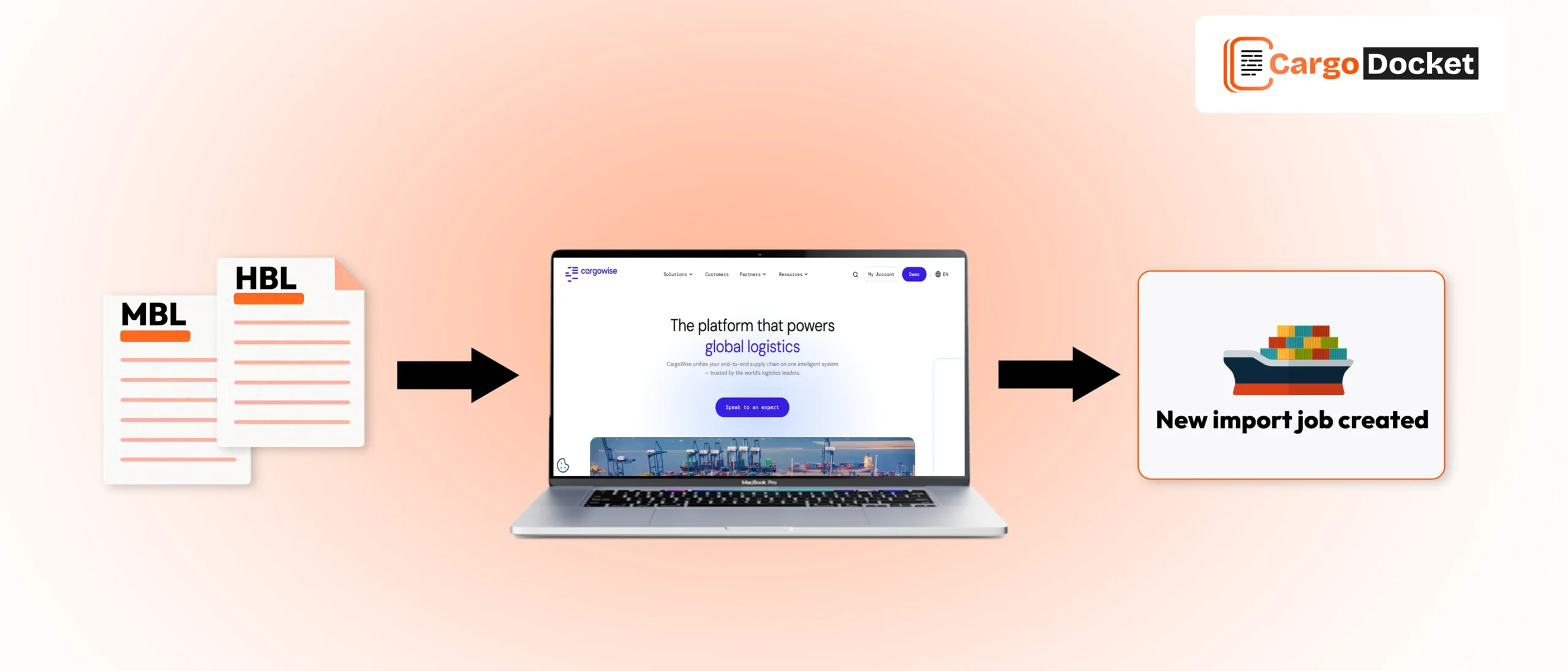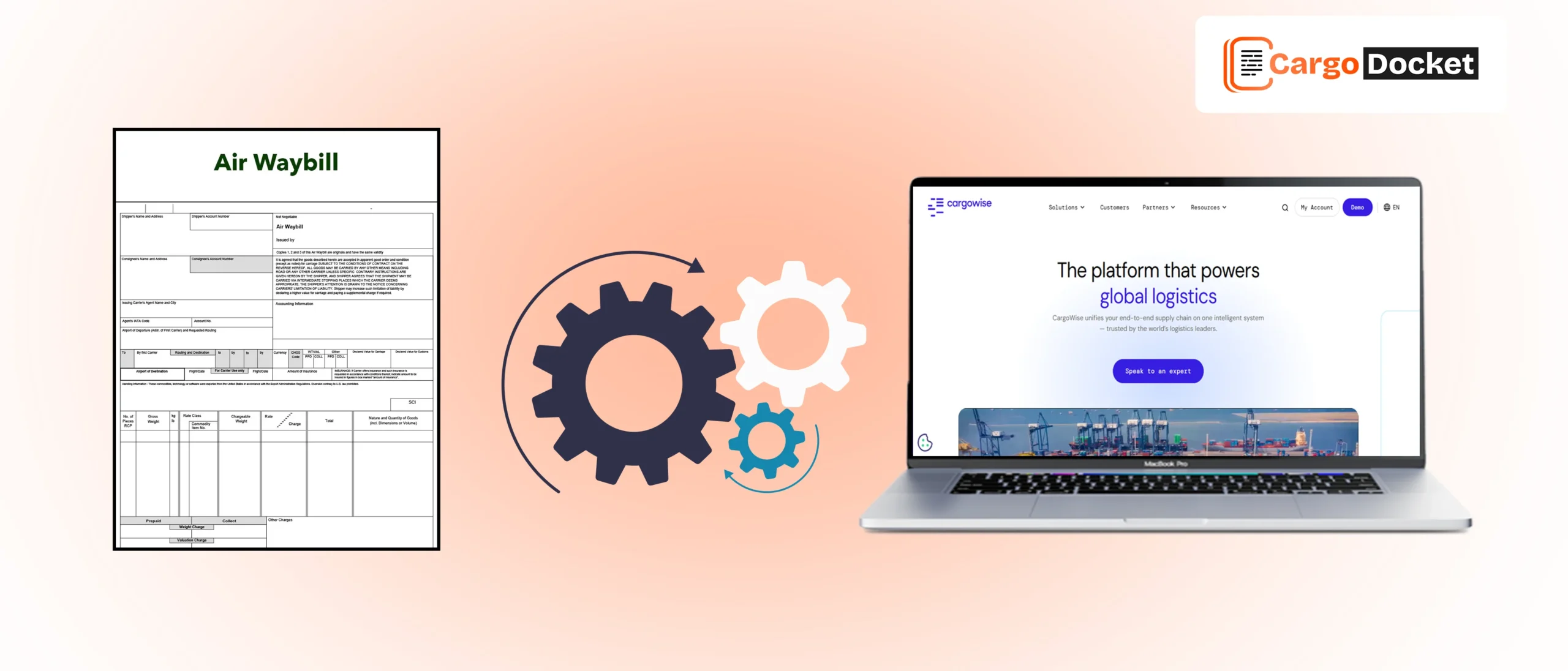RPA is the bridge between today’s manual processes and tomorrow’s intelligent workflows.
As companies strive to simplify their operations and reduce costs, automation is becoming a key solution to managing repetitive tasks. One powerful tool leading the way is Robotic Process Automation (RPA), a revolutionary tool for logistics operations. If you’re looking to transform your logistics management, this blog will explain RPA and show you how it can change your company.
Understanding RPA
RPA is a technology that uses robots (software bots) to automate repetitive and rule-based tasks that are traditionally performed by humans. The primary goal of RPA is to increase operational efficiency, reduce errors, and lower operational costs by automating mundane tasks, such as data entry, invoice processing, or document validation.
These bots are programmed to carry out specific tasks by mimicking the actions of human workers, such as opening applications, copying and pasting data, and making decisions based on predefined rules. RPA is particularly useful in industries where large amounts of data need to be processed quickly and accurately, like logistics and supply chain management.
The Vital Role of RPA in Logistics Operations
In the logistics sector, operations involve managing vast amounts of data across multiple systems, partners, and locations. Freight forwarding, inventory management, and shipment tracking all require constant updates and accurate data exchange. Handling this volume manually is not only time-consuming but also prone to errors.
Here’s where RPA steps in. By automating routine tasks, such as data extraction from invoices, document matching, and information validation, RPA can drastically reduce human error and free up employees to focus on more strategic and value-added tasks. RPA bots interact with various systems, ensuring that logistics processes are seamless, faster, and more accurate.
Key Benefits of RPA in Logistics
RPA is a fantastic way to increase productivity and cut costs in the massive supply chain and logistics sector.
1. Enhanced Efficiency and Speed
Logistics operations rely on the quick movement of goods, information, and documentation. Traditional manual processes, such as invoice matching, data entry, or document validation, are slow and prone to delays. By automating these tasks with RPA, logistics companies can process data in real-time, significantly improving workflow and overall efficiency.
For instance, when an invoice is uploaded, RPA bots can automatically extract relevant data, cross-check it with master data (like shipment details), and input it into an ERP system like CargoWise. This allows for quicker processing and fewer delays in the shipment cycle.
2. Cost Savings
The cost of entry for RPA is relatively low compared to other forms of automation, making it a highly cost-effective solution for logistics companies. By automating repetitive tasks, companies can reduce the need for manual labor, saving on operational costs.
RPA can handle high volumes of transactions without needing additional resources, thus lowering overhead costs. Plus, with bots performing routine tasks, human employees can focus on more critical responsibilities, driving better resource allocation and cost-effectiveness in the long run.
3. Accuracy and Reduced Human Error
In logistics, accuracy is crucial. Small errors in invoicing, data entry, or shipment tracking can cause delays and costly mistakes. RPA ensures that tasks are performed with consistent precision, as bots follow predefined rules without deviating.
For example, when matching invoices with master data, RPA bots ensure that all information aligns accurately, reducing the risk of costly errors. This level of accuracy can also enhance compliance, as bots can be programmed to follow regulatory requirements and ensure data consistency.
4. Scalability
As logistics operations grow, so does the volume of tasks to be managed. Scaling up processes manually can lead to inefficiencies, increased workloads, and potential errors. With RPA, companies can scale their operations smoothly. Bots can handle increased workloads without needing extra staff or additional training.
Because RPA is flexible, the bots can grow to match your company’s needs without sacrificing effectiveness or quality, whether you’re processing thousands of invoices or just a few.
5. Better Data Management and Integration
Logistics operations often involve multiple systems and software, making data integration a challenge. RPA can help by seamlessly extracting data from one system (such as invoices or shipment documents) and entering it into another, like a CargoWise ERP or a custom solution.
Moreover, bots can clean, format, and validate the data before pushing it into these systems, ensuring consistency across platforms. This enhanced data management ensures better decision-making and improves the overall efficiency of logistics operations.
6. Improved Customer Service
The logistics industry is driven by customer expectations, and companies must ensure they deliver timely and accurate services. RPA allows businesses to meet customer demands more effectively by reducing errors, improving processing times, and providing real-time updates.
For example, RPA can automate the process of generating real-time shipment tracking updates, improving communication with customers, and ensuring that they have up-to-date information on their shipments. This not only enhances customer satisfaction but also strengthens brand loyalty.
Why RPA is Now More Important Than Ever
RPA is a critical tool for businesses aiming to optimize operations. As the industry increasingly relies on digital solutions and real-time data, automation technologies like RPA are stepping up to help organizations meet these demands.
The global logistics sector has been experiencing significant disruptions, from supply chain challenges to changing customer expectations. The ability to quickly adapt to these challenges and maintain operational efficiency is now more important than ever. RPA enables logistics companies to be more agile, adapting to changes with minimal disruption.
Furthermore, as the industry faces pressure to reduce costs while maintaining quality service, RPA offers an attractive solution by minimizing manual effort and driving efficiency, all while keeping operational expenses low.
RPA in Cargo Docket: A Smart Investment
If you’re looking to incorporate RPA into your logistics operations, Cargo Docket offers a powerful and cost-effective solution. With the ability to automatically extract data from invoices and documents, match it with master data, validate the information, and integrate it into systems like CargoWise One, Cargo Docket ensures that your operations run smoothly with minimal effort.
By providing high ROI and an accessible entry point, Cargo Docket is transforming how logistics companies manage their processes, making automation more accessible and beneficial than ever before.
Conclusion
Robotic Process Automation is not about replacing humans; it’s about empowering them to focus on what they do best.
RPA integration into logistics processes is now required, not optional. RPA’s benefits are evident, ranging from increased speed and efficiency to lower costs and errors. As the logistics business evolves, RPA will remain a key component of operational excellence. Logistics organizations that adopt RPA solutions may remain abreast of the competition, increase customer happiness, and generate long-term growth.
If you’re ready to take your logistics operations to the next level, think about how Cargo Docket can deliver the automation and efficiency your company requires to compete in today’s unpredictable industry.





